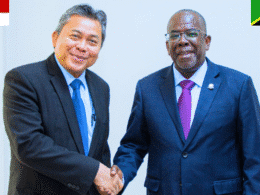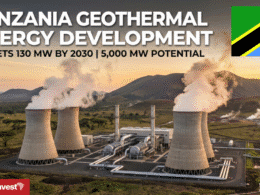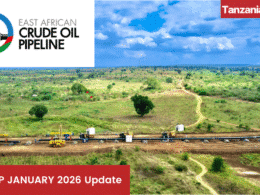TanzaniaInvest had the pleasure of interviewing Lutengano Mwakaesya, Director General of Tanzania’s Rural Energy Agency (REA), an autonomous body under the Ministry of Energy and Minerals who’s main role is to promote and facilitate improved access to modern energy services in rural areas of mainland Tanzania, where approximately 70% of the 50 million population lives.
Mr Mwakaesya discusses REA’s current performances and development strategies, as well as the investment opportunities available.
TanzaniaInvest: Electrification is one of the top priorities of Tanzania’s government as it is crucial to its vision to become a middle-income economy. Why was REA established in 2007 despite the existence of the Ministry of Energy and of the Tanzania Electric Supply Company TANESCO?
Lutengano Mwakaesya: In increasing the role of the government in rural supply, the Ministry of Energy and indeed the Government decided to put in place an institution would facilitate public and private participation in rural energy development.
REA complements the role of the Ministry of Energy and Minerals and that of TANESCO.
The National electric utility, TANESCO, is a commercial entity but the role of REA is mainly developmental.
Thus, REA has to see into it that that there is equitable development in this country, changing the livelihood of the rural people, trying to assist the government to attain both social and economic objectives in the shortest time possible.
TI: Tanzania has recently announced to have electrified 5,000 villages. How has this been achieved? What are your next objectives, challenges and strategy?
LM: Electrifying 5,000 villages has been mainly done through National grid extension but we also have some off- grid mini grids that are already operative and provide energy services to rural villages.
This has been achieved through Government and other stakeholder initiatives to increase funding to the Energy Sector.
Grid extension projects have taken a bigger share of the financial resources in the Rural Energy Fund because it is easier to reach many people in a shorter time, unlike the time it takes to develop, say, a hydro based mini-grid.
But, there is a limit to the application of National grid extension; it works best in areas with communities that are close together.
But if you go into settlements that are far apart, it becomes quite expensive to connect each settlement by grid, so you need to look into other ways of bringing modern energy services to the localities.
We have also been promoting private sector participation in rural energy supply by providing financial assistance in the form of matching grants for project preparation; preparation of business plans; as well as environmental and social impact assessments.
Performance grants have also been provided to draw down connection costs to households.
Our key objective is to accelerate energizing rural transformation.
One of the major challenges will be availability of financial resources to make our dream a reality.
But, we have to increase and improve our facilitative role to private sector entities as well as public sector institutions to enable them increase their involvement in the provision of modern energy services to the rural population.
TI: Do you have specific areas or projects where you would need more participation from the private or public sector?
LM: Yes, those areas which can’t be reached by the main grid.
Interventions such as support to the establishment of mini grids and pico solar PV systems to individual households will be of paramount importance.
TI: Is it safe to say that, in general, renewable energies could the decisive factor in the speedy electrification off-grid?
LM: Yes, partially so but it can’t be a one hundred percent solution to that.
We have to keep all energy options open to provide rural electrification in Tanzania and, while renewable energies are good, the major drawback is that development of some of them takes a long time.
TI: Tanzania is power-hungry and the demands for electricity is growing exponentially. However, there are other countries in similar situation in Africa, with similar needs for rural power development.
Why invest in Tanzania in rural energy?
LM: Because Tanzania has put up quite an attractive legal and regulatory regime for investment in energy production and distribution; and, as you all know, Tanzania is a peaceful country, so your investment will be safe and secure.











